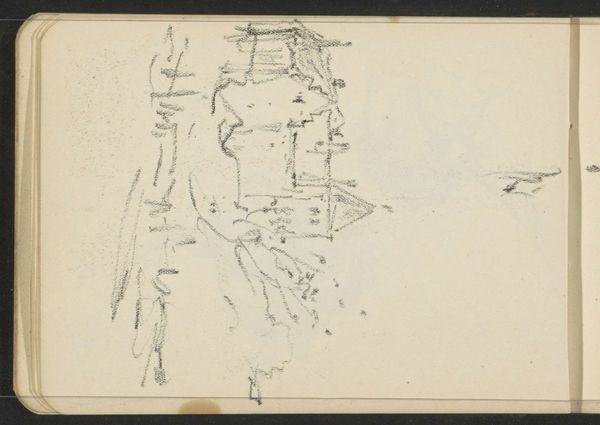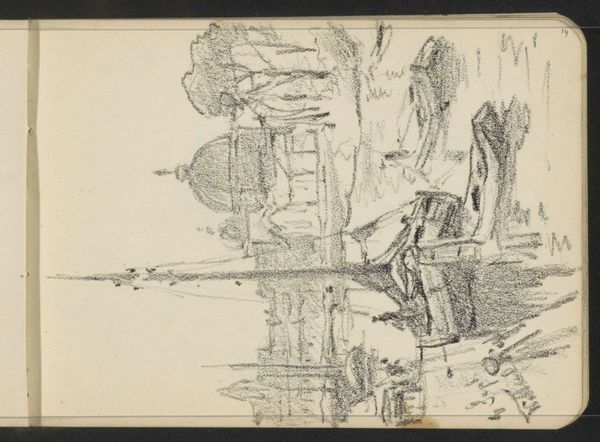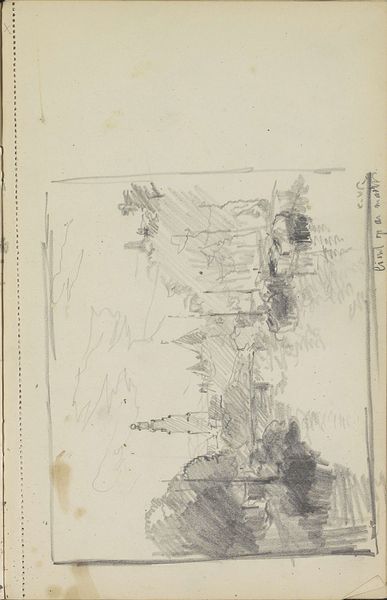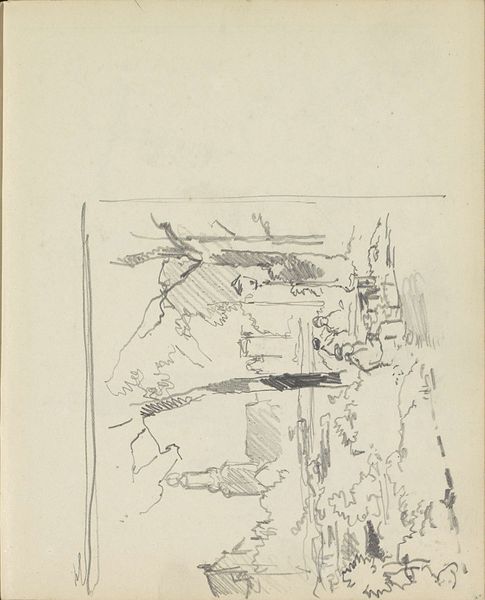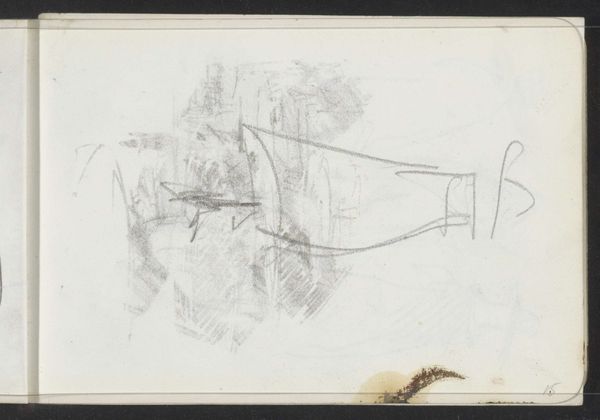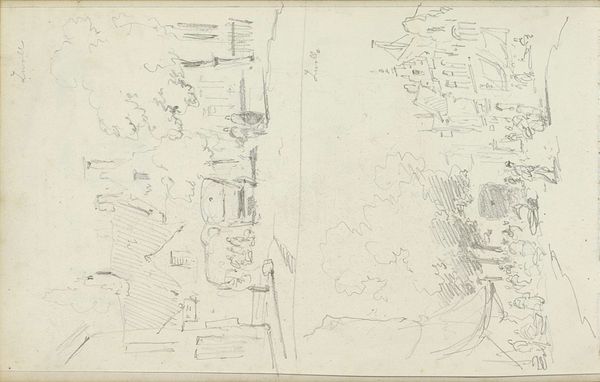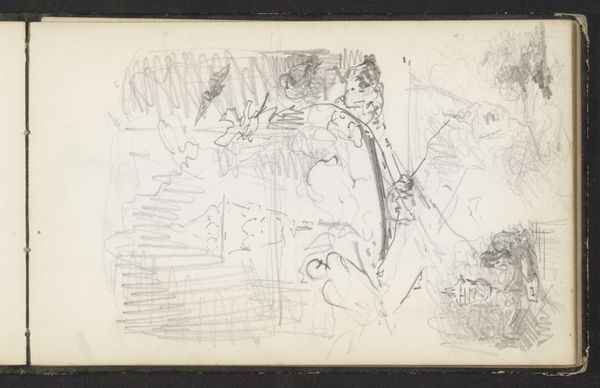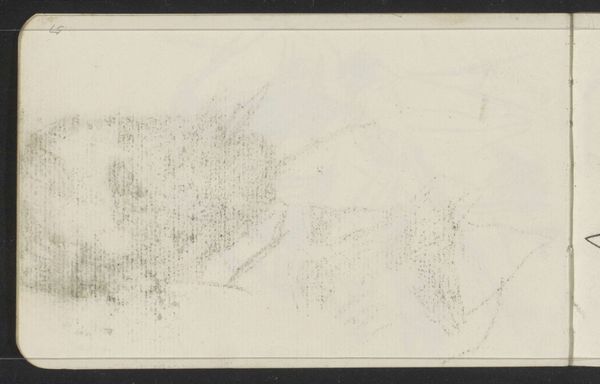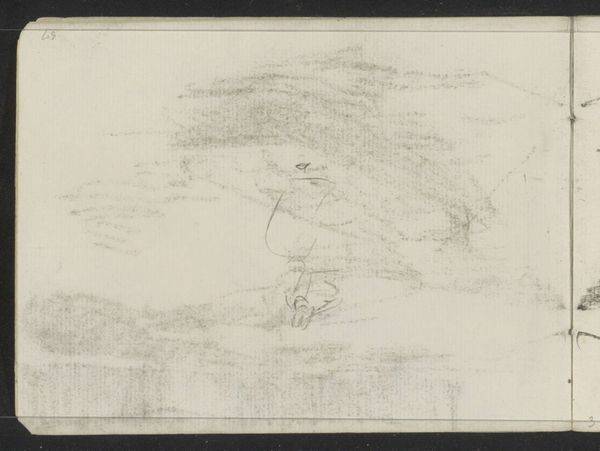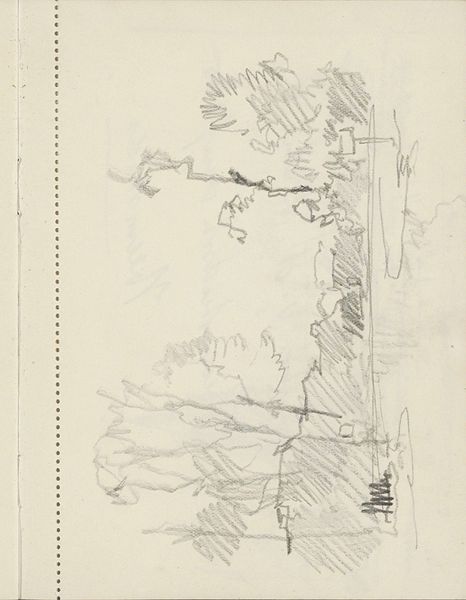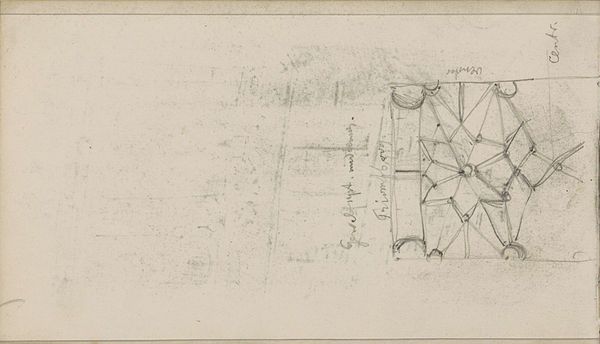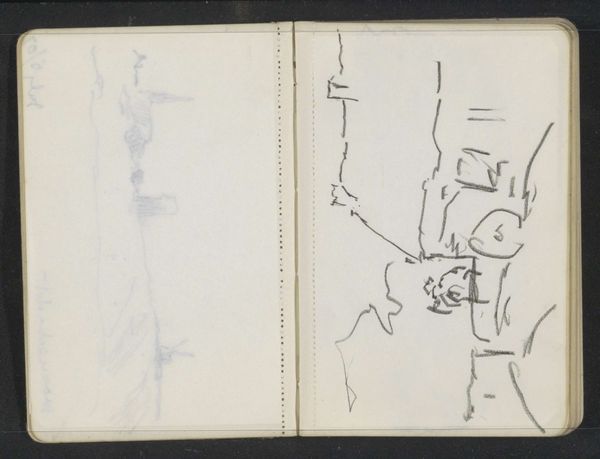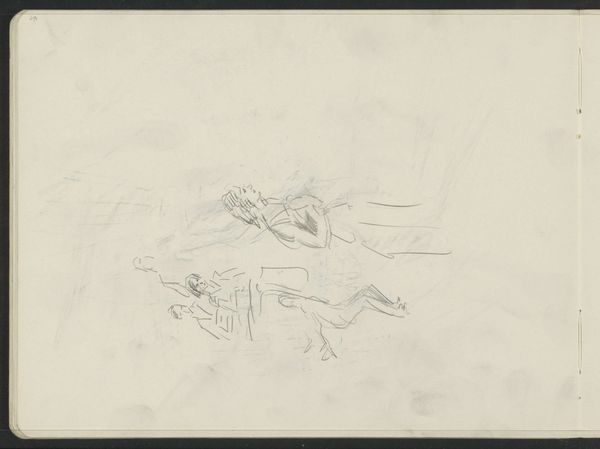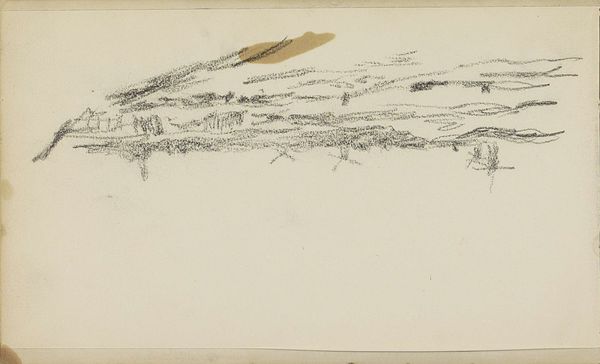
drawing, graphite
#
drawing
#
quirky sketch
#
pen sketch
#
incomplete sketchy
#
landscape
#
personal sketchbook
#
sketchwork
#
ink drawing experimentation
#
geometric
#
pen-ink sketch
#
pen work
#
graphite
#
sketchbook drawing
#
sketchbook art
#
modernism
Dimensions: height 115 mm, width 160 mm
Copyright: Rijks Museum: Open Domain
Curator: Here we have a graphite and ink drawing by Willem Cornelis Rip, created sometime between 1914 and 1916. It's titled "Molen aan een waterkant," which translates to "Mill on a Waterfront." Editor: My initial feeling? Dreamy, a little melancholic, and very unfinished. The stark contrast between the dark mill and the faintly sketched water creates a striking imbalance. I'm instantly intrigued. Curator: It's fascinating how Rip captures a sense of place with such economy of line. The mill, while rendered with dark, almost frantic strokes, seems to emerge organically from the surrounding landscape. This resonates with broader themes present at the time around industrialization and humanity's connection to the natural world, themes prevalent in modernist works. Editor: You’re right, that frantic energy is exactly it! It's almost like he's battling the landscape with his pen, wrestling its essence onto the page. Makes me wonder what he was feeling when he created this. Was it frustration, fascination, or a bit of both? There's such rawness to it; you can almost feel the artist’s hand moving. It reminds me of a fever dream, beautiful but disorienting. Curator: Considering the era in which this sketch was created, amidst the turmoil of the First World War, it’s easy to interpret the "Molen aan een waterkant" through the lens of societal disruption. The mill itself could be seen as representing a former idyllic past now threatened. Editor: Ooh, that throws a new light on it. I’d been thinking purely about the aesthetics. Your point definitely gives the drawing a deeper, more urgent weight, but I still love that it exists as a fragment. A beginning, not an end. The emptiness surrounding the central form encourages a collaboration with the artist; my mind rushes in to complete it. Curator: Ultimately, Willem Cornelis Rip’s sketch exemplifies how deeply personal observations intersect with greater social and political currents. It invites us to contemplate the ever-shifting dynamic between humanity, industry, and nature. Editor: Yes, I can definitely carry that interpretation with me and I’m certain I’ll always see in this incomplete rendering a portal. A place I want to finish building in my imagination again and again.
Comments
No comments
Be the first to comment and join the conversation on the ultimate creative platform.
